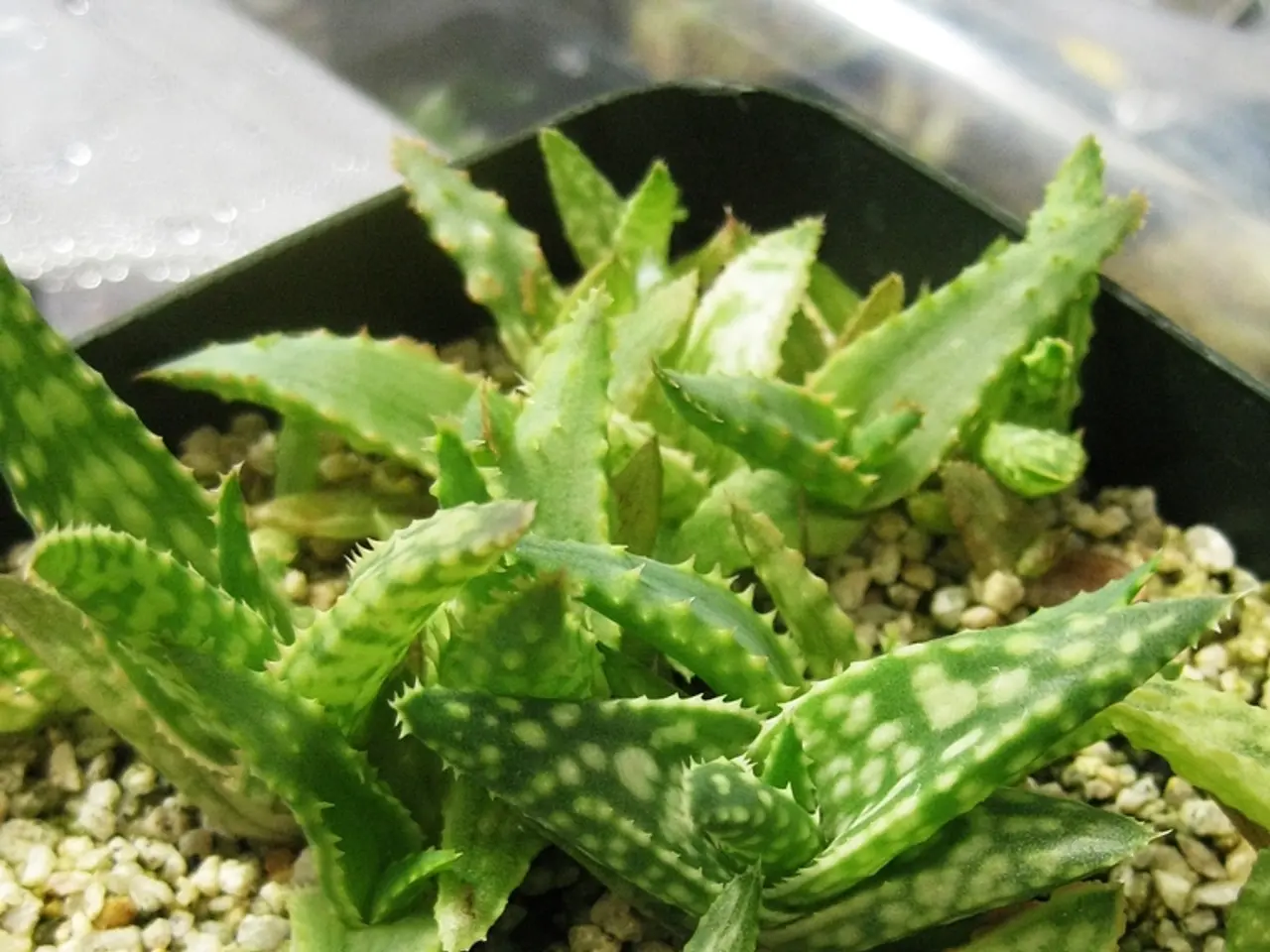Utilizing Aloe Vera for Psoriasis: Advantages and Application Methods
**Article Title: Aloe Vera as a Potential Complementary Treatment for Psoriasis**
Aloe vera, a succulent plant with gel-filled leaves, has been used in traditional medicines for thousands of years to treat various skin conditions, including psoriasis. Recent scientific research suggests that aloe vera may offer benefits in managing certain symptoms of psoriasis, although more studies are required to confirm its effectiveness as a comprehensive treatment.
One of the key advantages of using aloe vera for psoriasis is its **anti-inflammatory properties**. These properties can help reduce redness, inflammation, and scaling associated with psoriasis plaques. Some studies indicate that aloe vera cream can be as effective as mild corticosteroids like 0.1% triamcinolone acetonide for treating mild to moderate psoriasis. However, it's important to note that there is no conclusive evidence that aloe vera can treat psoriasis specifically; it may only alleviate certain symptoms.
Aloe vera can provide relief by soothing the skin, reducing inflammation, and alleviating itchiness, which are common symptoms of psoriasis. Moreover, it helps keep the skin hydrated, reducing dryness and discomfort. For individuals seeking a natural alternative to steroids, aloe vera offers a viable option.
However, potential risks should be considered. Some individuals may experience allergic reactions to aloe vera, such as skin irritation or redness. It's essential to test the gel on a small area of skin before applying it more widely to check for any unwanted reactions. Additionally, aloe vera may interact with certain medications, including diabetes medications, and should be used cautiously under medical supervision.
While aloe vera may help manage symptoms, it is not a substitute for doctor-recommended treatments. It should be used as a complementary therapy rather than a replacement. Psoriasis is a long-term inflammatory condition that affects the skin and joints, and determining whether aloe vera is an effective treatment for the overall condition of psoriasis will require further research.
In 2018, a study found that people with mild to moderate psoriasis who applied a combination of 50% propolis and 3% aloe vera for 12 weeks saw an improvement in symptoms. While this suggests that aloe vera may relieve certain psoriasis symptoms, there is no evidence that it can treat psoriasis specifically.
It's important to remember that there is currently no cure for psoriasis, but various treatment options can help relieve symptoms. Anyone experiencing severe, persistent, or worsening psoriasis symptoms should consult a doctor.
In conclusion, aloe vera can be a useful complementary treatment for managing psoriasis symptoms, especially when used alongside other treatments under medical guidance. With its anti-inflammatory properties, moisturizing benefits, and natural appeal, aloe vera may offer a promising addition to the arsenal of treatments for those managing psoriasis.
[1] National Psoriasis Foundation. (n.d.). Aloe vera. Retrieved from https://www.psoriasis.org/about-psoriasis/treatment/natural/aloevera
[2] National Psoriasis Foundation. (n.d.). Aloe vera gel: Is it safe for treating psoriasis? Retrieved from https://www.psoriasis.org/about-psoriasis/treatment/natural/aloevera-safety
[3] National Psoriasis Foundation. (n.d.). Aloe vera: A natural remedy for psoriasis symptoms. Retrieved from https://www.psoriasis.org/about-psoriasis/treatment/natural/aloevera-symptoms
[4] National Psoriasis Foundation. (n.d.). Aloe vera: Safety and interactions. Retrieved from https://www.psoriasis.org/about-psoriasis/treatment/natural/aloevera-safety-interactions
- The anti-inflammatory properties of aloe vera can help in managing symptoms of psoriasis like redness, inflammation, and scaling.
- Aloe vera cream can potentially be as effective as mild corticosteroids for treating mild to moderate psoriasis, providing relief and alleviating itchiness.
- For individuals seeking natural alternatives to steroids, aloe vera offers a valuable option, as it also helps keep the skin hydrated.
- However, potential risks should be considered when using aloe vera, such as allergic reactions and possible interactions with certain medications, particularly diabetes medications.
- Aloe vera should not be used as a replacement for doctor-recommended treatments for psoriasis, but as a complementary therapy alongside medical guidance.




